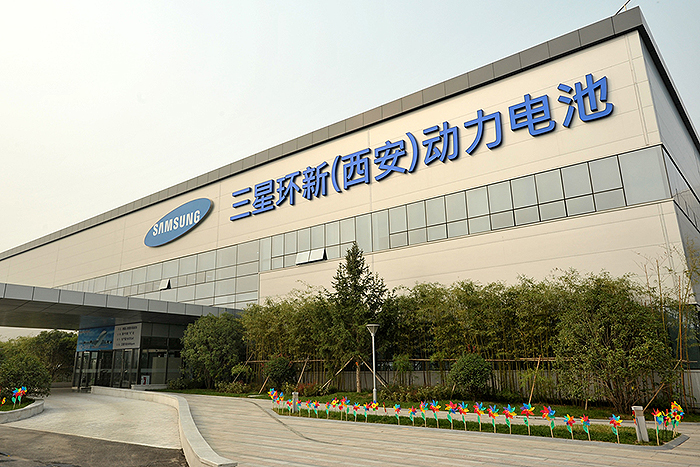Samsung announced last week that is developing new solid-state batteries that could offer double the energy density of current lithium-ion batteries.
This would be a major breakthrough for electric cars. Greater energy density means more energy can be stored in a given volume, allowing for increased range without increasing the physical size of a battery pack.
Samsung said this technology could allow an electric car to travel 800 kilometers (nearly 500 miles) per charge, with a lifespan of 1,000 charging cycles.
Solid-state batteries are named for their solid electrolyte, as opposed to the liquid electrolyte used in today's lithium-ion batteries. Automakers have been drawn to the technology for the greater energy density, and for the hope of better stability and safety.
However, the lithium-metal anodes used in previous solid-state battery chemistries can trigger the growth of dendrites, which can shorten a battery's lifespan, according to Samsung.

Samsung SDI battery plant in Xi'an, China
The company's solution is a silver-carbon composite layer over the anode. This also allowed researchers to make a prototype 50% smaller by volume than a comparable lithium-ion battery, according to Samsung.
While Samsung currently supplies battery cells for electric cars, the company did not discuss firm production plans for these solid-state cells. As with all research, promising lab results may not lead to a commercially-viable product.
Several major automakers have shown interest in solid-state batteries as a way to boost the range of future electric cars.
In 2019, General Motors received a $2 million U.S. government grant to develop the technology, while Volkswagen has said it plans to put solid-state batteries into production by 2025.
Toyota and Panasonic have also teamed up to develop solid-state batteries. Toyota views them as vital to future electric cars, but Panasonic has taken conservative view, saying they may not arrive until later this decade.












